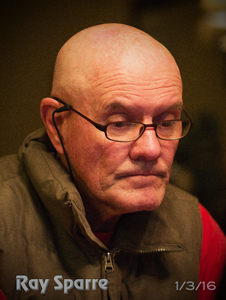
Insightful Musings on theScriptures
by
Raymond P. Sparre
Northwest University class of '67
Greetings, dear ones.
It’s pouring rain at present. Thankfully, I found a decent break in the rain this morning to allow me to do some logging and tree work. I dropped a big standing dead fir tree. It turned out to not qualify as a sawlog—too much rot in the sapwood. I had to resort to some special rigging to make it fall where I wanted. I was able to load up another fir tree in the form of 3 good sawlogs. Now, we need to run off to a restaurant as a birthday party venue for our granddaughter, Samara. Wow! 13!
Blessing on your evening.
Love, Dad/Ray.
Those of us with any kind of senior vintage can remember back to our adolescent temptations to regard ourselves as close to invincible—strong, healthy, enthusiastic, and maybe a little presumptuous that we could maintain all that indefinitely—like, “All those other people can get old if they want to, but not me!” Even as dedicated believers, we can yield in measure to some contaminated notions along the way, like, “God is pretty lucky to have such a wonderful devoted servant like me on His team. That being the case, surely He is obligated to bless me, prosper me, heal me, profoundly use me, and answer my prayers.”
In both readings, Psalm 30 by David and Proverbs 30 by Agur, the subtlety of pride is addressed. Indeed pride comes in many sizes, shapes, and flavors (not the least of which is spiritual/theological/denominational pride). Agur, in the FOCUS VERSES, is paying attention to the performance of others around and ahead of him—observing that wealth and affluence can cause people to adopt a deceptive sense of self-sufficiency where they become so successful in their livelihood so as to not need God. So, recognizing that it’s not entirely safe to trust himself, he turns to God with this earnest request, in so many words—“Lord—help me to be resistant to common deceptions concerning Who You are and who I am—blessed with not too much nor too little, but just enough to maintain my sense of absolute dependence on You.” I honestly have to concur—I don’t think I would want to trust me with great wealth or success either.
In David’s case, he reflects on his past and acknowledges, “When I felt secure, I said, ‘I will never be shaken…but when you hid your face, I was dismayed” (Psalm 30:6-7). In other words, “When I was at the top of my game, I figured I would always be there. But when You allowed the rug to be jerked out from under me, I woke up!” What would we fledgling followers do without those corrective wake-up calls?!
It would seem that both David and Agur understood the message of Proverbs 16:18—at least at the point of their writing: “Pride goes before destruction, a haughty spirit before a fall.” The New Testament chimes in with this word: “So, if you think you are standing firm, be careful that you don't fall!” (1 Corinthians 10:12-13). Also, we are wise to embrace John’s instruction when he advises, “Love not the world, neither the things that are in the world. If any man love the world, the love of the Father is not in him. For all that is in the world, the lust of the flesh, and the lust of the eyes, and the pride of life, is not of the Father, but is of the world” (1 John 2:15-16).